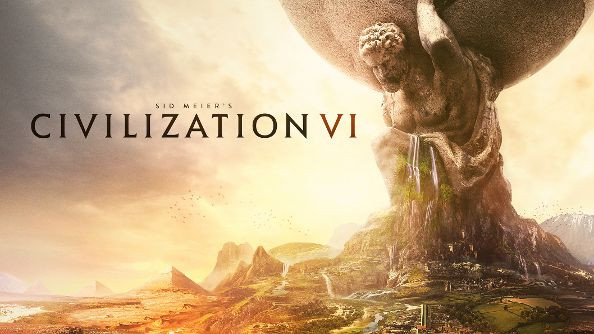Civilization VI is coming out in October, and it’s bringing a slew of new features with it—Districts, Builders, revamped civics and science systems. The game is also pushing forward some of Civ V’s best features for the new generation. City-States, Tourism and trade routes are all getting a reinvention. But the Civilization series has lasted a long time and older games have had some very cool features of their own. Let’s take a look at some long-lost features, big and small, that should come back from older Civ games.
Civilization VI Features: Make What’s Old New Again
Engineers
O, the long-lost engineer of Civilization. Back in the era of Civilization II, engineers could make the desert bloom. Ah, the optimistic ’90s. Engineers were an upgrade to the settler, which both founded cities and built improvements. But unlike workers, they could actually change terrain—not just improve it. It took a long time, but engineers could turn mountains into hills, or desert into plains, or tundra into grassland. You’d need truly a lot of them to make a difference on a large scale, but the flexibility they offered was truly great… and it was just plain exciting to finally fix that one crappy desert tile you had long endured. They may seem unrealistic now, but for sheer fun value, Civ VI should bring them back as an upgraded Builder. Of course, the engineers also served as a counter to…
Devastating Global Warming
In Civilization II, global warming was no laughing matter. Weirdly, in an era when global warming was less mainstream than it is today, it was more devastating in the game. In every later Civ game, global warming hits one tile at a time. A single grassland will turn to desert. As industrialization picks up, the pace of global warming increases, but unless you go all-out nuclear war, global warming is really just a nuisance. In Civ II, it was devastating. When global pollution hit a tipping point, every lowland tile in the world would turn to swamp, and deserts would expand dramatically. It would immediately upend the world’s balance and cause a massive famine.
Sure, a more gradual global warming is more realistic, but the recent games have deployed the mechanic too slowly. Civ VI should strike a balance. Global warming should be a dire threat with permanent consequences for your whole civilization and world, not just a few cities here and there.
Corporations
Okay, let’s face it: corporations in Civ IV were and are broken. The late-game mechanic, added in the Beyond the Sword expansion, adds some truly interesting mechanics that really make the industrial age feel like it means something. For whoever got the good corporations, the productivity and food boost was incredible. But the system wasn’t balanced properly. Civ VI should try it again—but build it in from the ground up this time.
Ideology
Okay, Ideologies are from Civ V, but we haven’t heard too much about them in Civ VI yet, and we really should hope that it comes back. The late-game Brave New World-era addition of Ideologies really shook up Civ V in a great way. The game had always been a little weak on the diplomatic side compared to Civ IV, but Ideologies helped to bridge the gap. Most interestingly, Ideologies created a real-world realignment in the late game, much like the one that happened in the 20 th century as ideologically-driven regimes took over around the world. Your ally of a thousand years who adopts Order, for reasons that make sense for her, may not be an ally much longer. The policy implications were a nice plus, but the really cool thing about Ideologies is that late game shake-up. Let’s see it again, integrated with overall…
Better Diplomacy
Something happened with Civ V’s AI. It’s good at running an empire, but not at working with others. Early decisions for AI behavior to be more mysterious led to the game’s diplomacy feeling quite obfuscated and hard to understand. But this wasn’t always the case. Civilization IV had a truly elegant diplomatic system. Positive and negative modifiers, visible to the player, always showed you exactly where you stood with every rival and why (modifiers were made visible to Civ V players in a patch, but have much less detail).
If someone declared war on you in Civ IV, it was almost always obvious why. They wanted your territory; hated your religion; loathed you for betraying their allies; worried about your expansion. You knew. And you could forge real, lasting friendships. Friendly civs wouldn’t invade you for fun. Gradual realignments over time kept things interesting—religion and borders helped define early relationships, while by the late game, many other factors entered into play. Bring that more complex and open system back into Civ VI, coupled with Ideologies, and you’ve got yourself a stew going—a complex diplomatic stew.
The Council
Oh, the council of advisors in Civ II. What a creature of its time. An Elvis impersonator through the ages! Good advice, with a side of entertainment. Make it happen again, Civ VI. Or maybe don’t, but at least let’s relive the glory days:


















